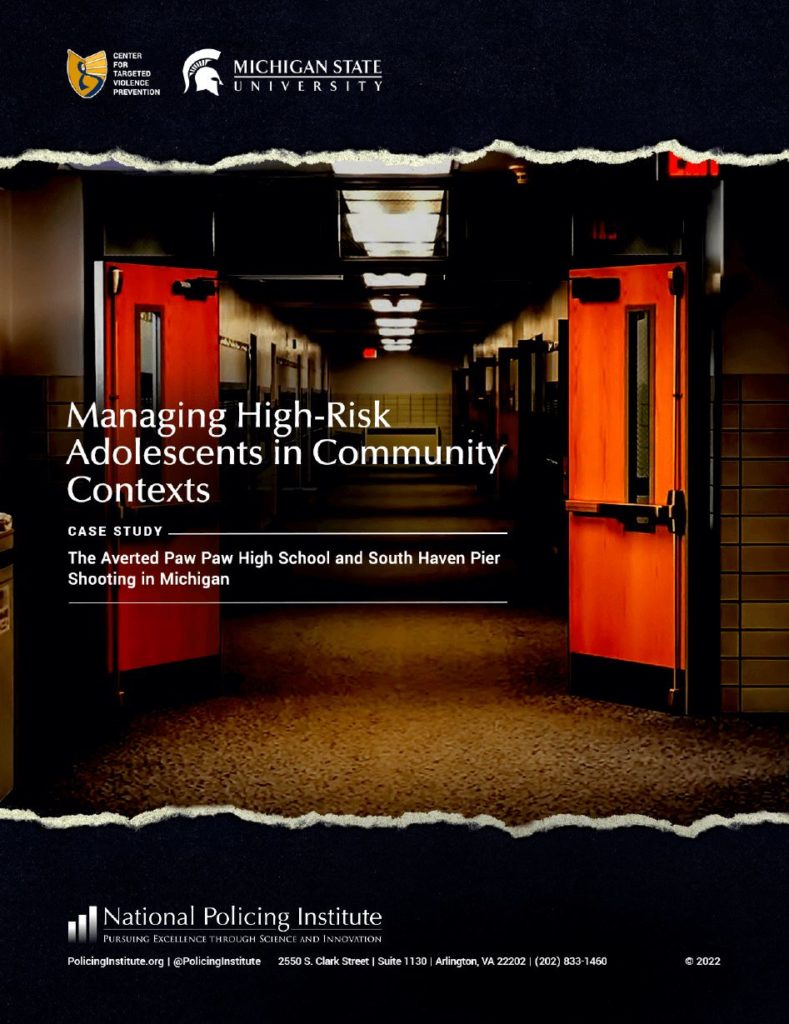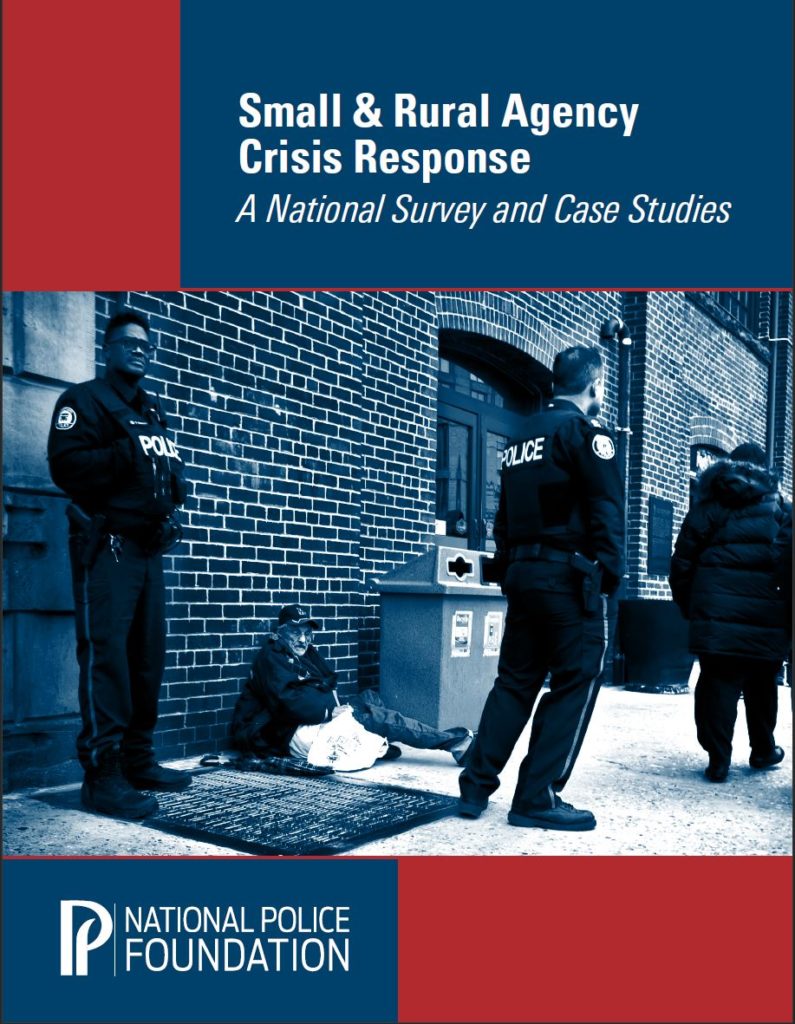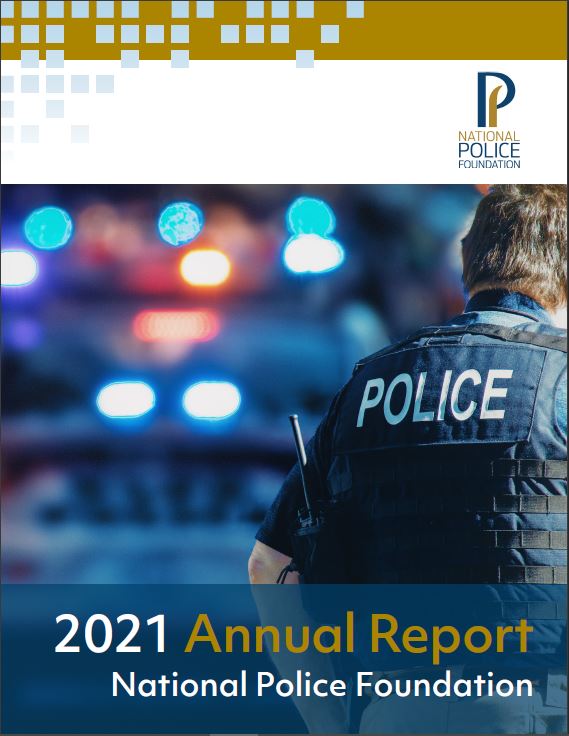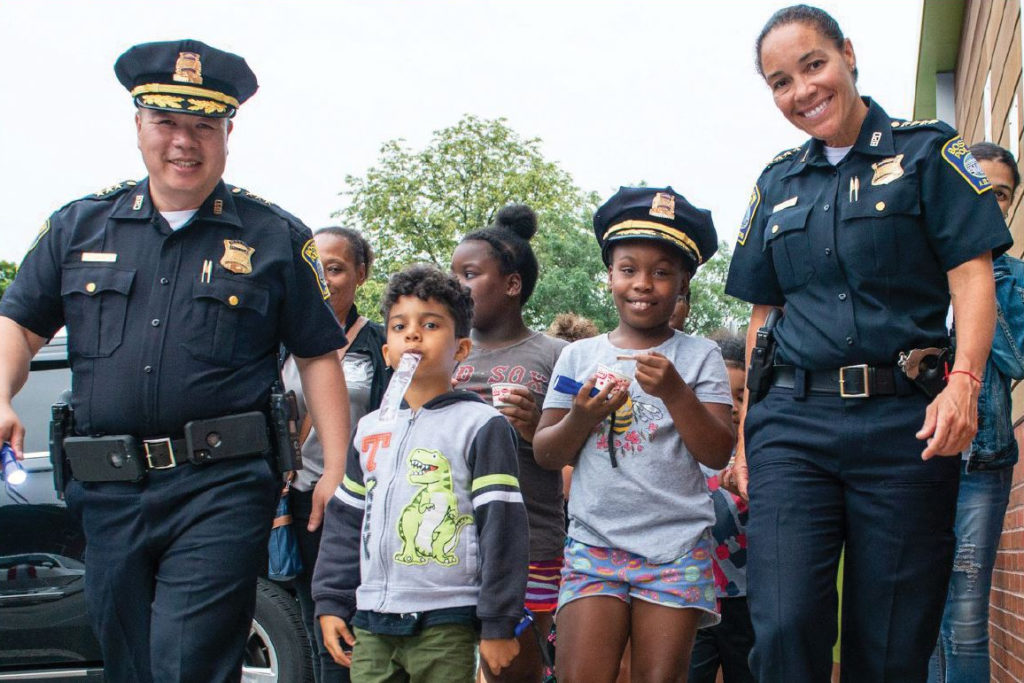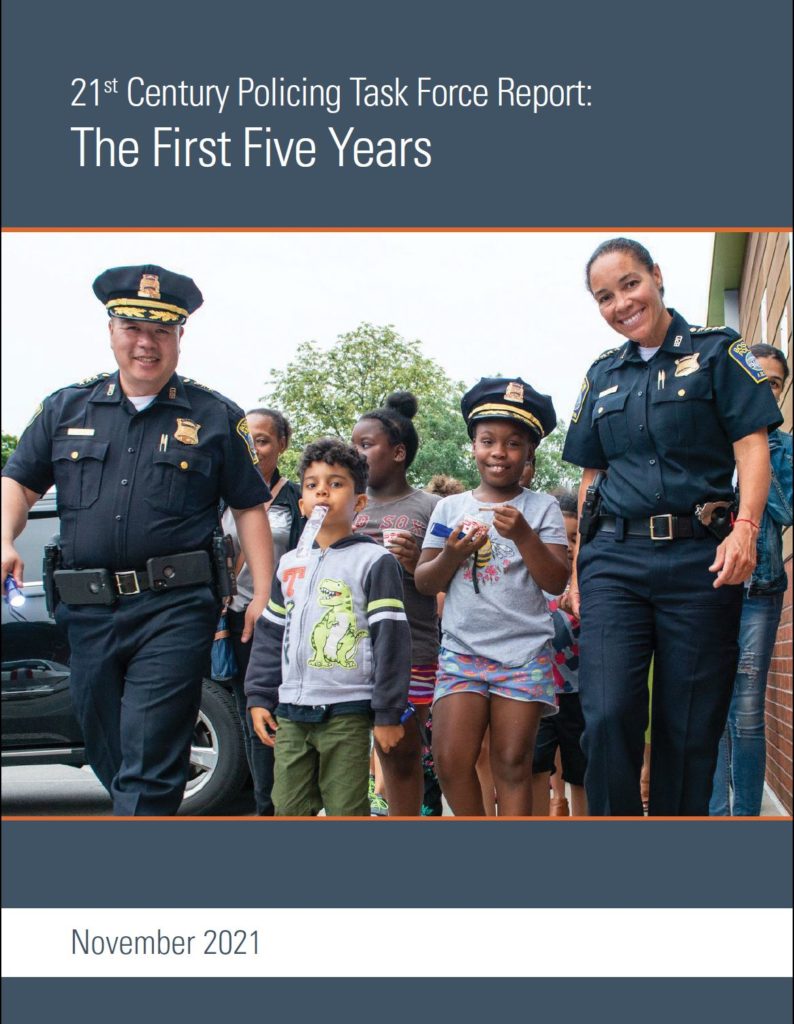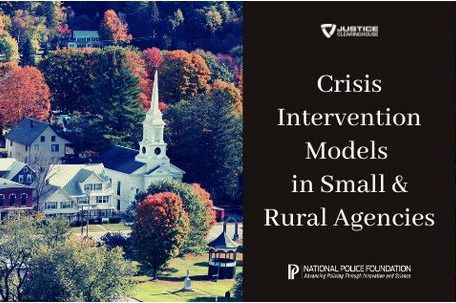Posts Tagged ‘Community Partnerships’
Managing High-Risk Adolescents in Community Contexts: The Averted Paw Paw High School and South Haven Pier Shooting in Michigan
Study: Intensive, Specialized Training of Police Officers Leads to Reduced Crime, Fewer Arrests, and More Positive Interactions and Community Evaluations
Can training police officers in procedural justice reduce crime and improve the community’s perceptions of the police? An intensive, randomized controlled trial conducted in high-crime places (or “hot spots”) produced evidence that training officers to operate according to the principles of procedural justice changed officer behavior, reduced arrests, and reduced crime. Perceptions of the police…
Read MoreNational Police Foundation to Change Name to National Policing Institute
ARLINGTON, VA – The National Policing Institute, formerly known as the National Police Foundation, is an independent research organization committed to pursuing excellence in policing through the use and promotion of innovation and science. Today, with a new name that better reflects its purpose, the organization is moving forward with the mission it was created…
Read MoreSmall & Rural Agency Crisis Response: A National Survey and Case Studies
2021 Annual Report
Digital Forum on Prevention: Digital Ecosystems for Student Security, Safety, and Well-Being
NPI Releases Report on the Reach and Influence of the 21st Century Policing Task Force Report
The National Policing Institute (NPI) is proud to partner with the Joyce Foundation and 21CP to assess the reach, impact, challenges, and successes of the principles of the 21st Century Policing Task Force Report (21CPTFR). This project examines the law enforcement field in the five years following the 21CPTFR’s finalization and publication, including both the…
Read More21st Century Policing Task Force Report: The First Five Years
Crisis Intervention Models in Small and Rural Jurisdictions
National Policing Institute to Host Webinar Discussing Research Findings from Study Examining Crisis Response Models Within Small Law Enforcement Agencies
In January of 2021, NPI published the results of a national study that examined the kinds of approaches that small law enforcement agencies are adopting to respond in appropriate ways to persons with behavioral health needs, particularly persons with mental illnesses or substance use disorders. The study was designed to answer three questions: What types…
Read More
